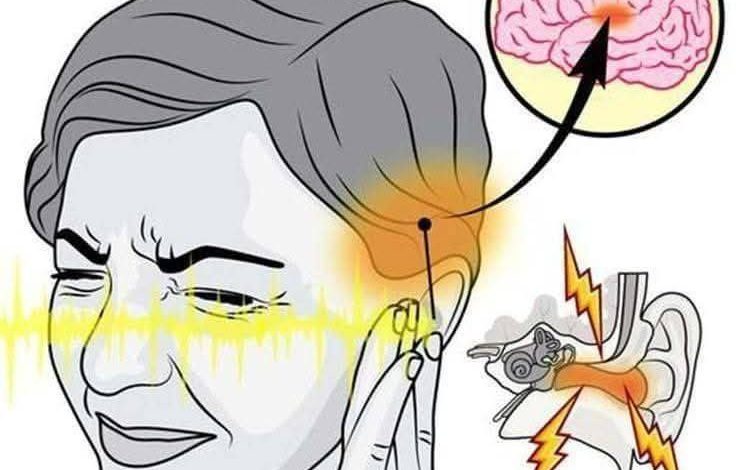If you hear ringing in your ear, this is a sign that you will suffer from…

Have you ever heard a sound like a ringing, buzzing, or hissing noise in your ear, even when it’s quiet around you? If this happens, it might be a sign that you are experiencing something called tinnitus. Tinnitus is when you hear sounds that aren’t really there. It can be very annoying and make it hard to focus on things. Many people experience this, and it can happen for different reasons, such as being around loud noises, feeling stressed, or having other health problems.
Let’s talk about the two main kinds of tinnitus:
- Subjective Tinnitus: This is the most common kind. Only the person who has it can hear the sound. It’s like a secret noise inside your ear.
- Objective Tinnitus: This is much less common. In some cases, a doctor might be able to hear the sound during an exam.
Here are some of the things that can cause tinnitus:
- Loud Noises: Being around very loud sounds for a long time can hurt the tiny hairs inside your ear that help you hear. This is like when you listen to music too loud with headphones.
- Hearing Loss: As we get older, our hearing can get worse. This can sometimes lead to tinnitus.
- Ear Blockages: Sometimes, wax can build up in your ear, or you might get an ear infection or fluid buildup. These things can block sound and cause tinnitus.
- Health Problems: Certain health conditions, like Meniere’s disease, acoustic neuroma, or high blood pressure, can cause tinnitus.
- Medicines: Some medicines, like high doses of aspirin or certain antibiotics, can cause tinnitus as a side effect.
What are the signs of tinnitus, and how is it diagnosed?
The main sign is hearing a sound that won’t go away. This sound might be high or low, loud or soft, and it might come and go.
If you think you have tinnitus, a doctor can help. They might do a physical exam, test your hearing, and take pictures of your ear to find out what’s causing it.
How can you deal with tinnitus?
While there’s no single cure for tinnitus, there are things you can do to make it less bothersome:
- Sound Therapy: Playing soft background noise, like white noise or nature sounds, can help cover up the ringing.
- Cognitive Behavioral Therapy (CBT): This type of therapy can help you learn how to manage your feelings about tinnitus and how to cope with it.
- Medicines: In some cases, a doctor might give you medicine to help reduce the symptoms.
- Lifestyle Changes: Reducing stress, staying away from loud places, and wearing ear protection can help.
“Tinnitus is often not a serious condition,” but it can be very annoying. If you have tinnitus that bothers you a lot or makes it hard to do everyday things, it’s important to see a doctor. They can help you find out what’s causing it and talk about ways to make it better.




